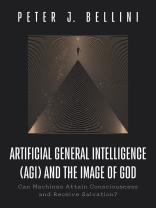Can artificial intelligence (AI) attain human-level consciousness? And if so, should the church minister salvation to AI? Through engaging philosophy of mind, AI research, the cognitive sciences, neuroscience, and theological anthropology, Dr. Bellini attempts to answer these questions. The hypothesis is if the hard problem of consciousness can be solved, and if human consciousness is replicable in AI, then attaining artificial general conscious intelligence (AGCI) is possible, and perhaps needs to be evangelized or discipled, as some claim. On the contrary, if the hard problem of consciousness cannot be solved and human consciousness is not replicable in AI, then AGCI is not possible, and it does not need to be evangelized. And in either case, how can the church begin a theological conversation with AI with its potential to match and exceed human intelligence and performance? A theological position on consciousness and the image of God is proposed, demonstrating the uniqueness of human consciousness in contrast with AI and artificial consciousness. A thorough exposition of the image of God is offered to serve as a cornerstone for any future conversation on a theological perspective of machines (AI).
About the author
Peter J. Bellini is professor of church renewal and evangelization in the Heisel Chair at United Theological Seminary in Dayton, Ohio. Dr. Bellini is an ordained elder in the United Methodist Church. He has served in ministry in a variety of capacities for over thirty-five years in countries throughout Latin America, Africa, East and Southeast Asia, Europe, and North America. Bellini is also a revivalist, specializing in teaching and preaching on the Holy Spirit, deliverance, healing, and prophetic intercession and spiritual warfare.







![Cover of Brian Schrag & Julisa Rowe: Community Arts for God's Purposes [Chinese] 貼近神心意的社群藝術 Cover of Brian Schrag & Julisa Rowe: Community Arts for God's Purposes [Chinese] 貼近神心意的社群藝術](https://static.worldofdigitals.com/thumb_webp/740/9781645083740.webp)




